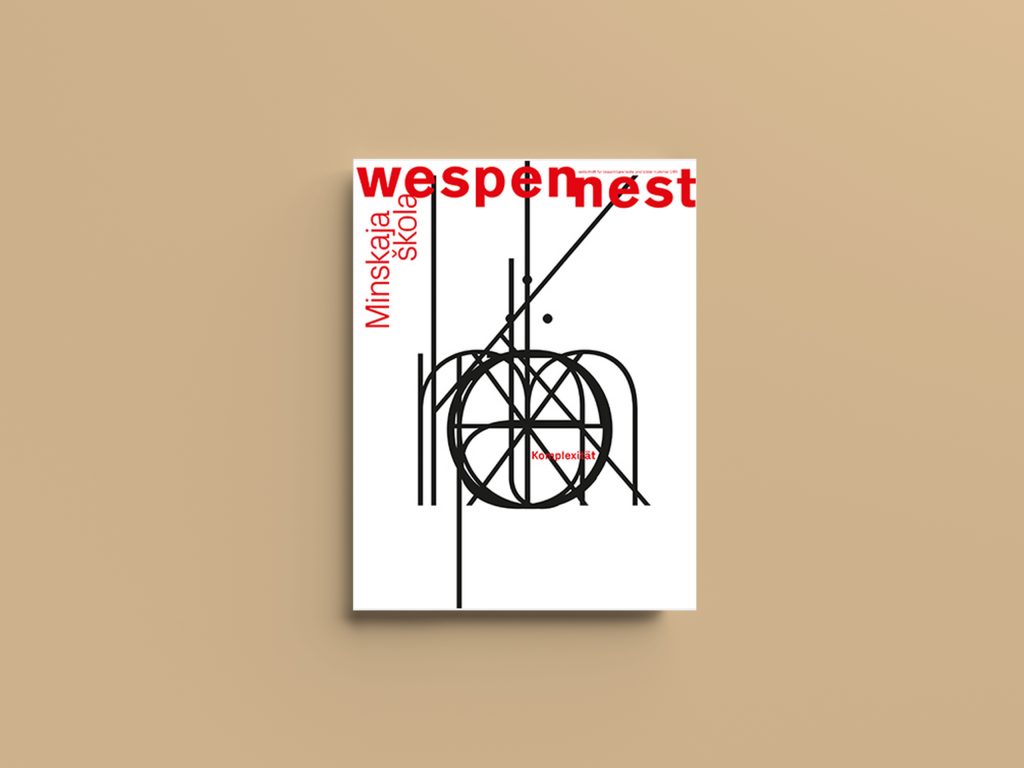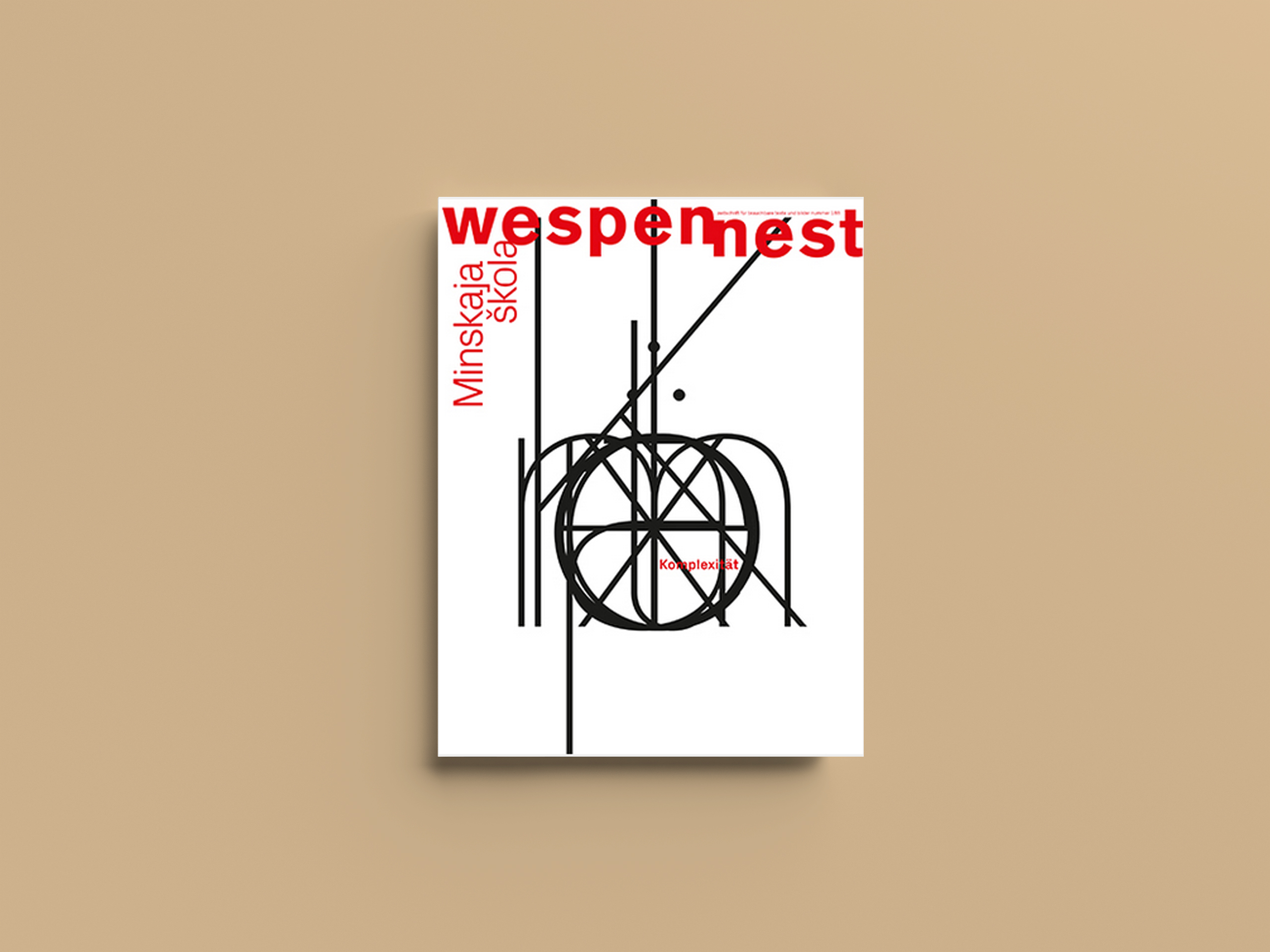In Wespennest, complexity scientist Stefan Thurner speaks to editor Andrea Zederbauer and literary scholar Thomas Eder about our evolving understanding of complex systems.
A complex system consists of many elements that interact with and influence one another: ‘The essential thing in a complex system is that not every component interacts with every other component in exactly the same way, but that these interactions are specific. Some components interact with each other, some do not.’ By way of contrast, Thurner points to planetary systems, which are not complex per se: each planetary body acts on every other planetary body via gravitational force, predictably and without exception.
Previously, complexity research was epistemologically handicapped by the sheer impossibility of accounting for the vast number of discrete interactions among the elements of a given system. But in the age of comprehensive large-scale datasets, the prospect of mastering this task has become more realistic, with potentially dramatic consequences for our understanding of complex systems.
One such is global trade. ‘Supply-chain data allows us to represent an entire economy’, says Thurner; ‘Every “atom” in the economy – every company, every business decision, every product or service it produces, how it interacts with other companies and how this changes it and everyone else – can be traced.’
But rather than ushering in an era of egalitarian transparency, our data-saturated age has led to a kind of ‘techno-fascism’ in which ‘the free access to data that was once promised has turned into unfree access to data’, while the workings of the complex system that determines the distribution of resources remain opaque. Thurner warns that if ‘the wealth generated by humanity as a whole’ is not ‘made visible and tangible’, ‘people [will] realize that something is being withheld from them’ – a state of affairs that ‘can quickly become political’.
Complexity and literature
Democracies depend on reading, argues author and information scientists Miha Kovač. Deep reading boosts the human capacity for abstract and analytical thinking, protecting us from the corrosive effects of bias, prejudice and conspiracy theories.
The basis of democracy is a citizenry that is able to think analytically and values the common good and compromise rather than ‘me first’ political agendas, that succumb to the demagogy of simplistic answers when dealing with new and unknown social and economic issues. Only a sufficiently large critical mass of people with the capacity for analytical and abstract thought and empathy, guarantees that, through dialogue and compromise, we will invent the social, economic and cultural policies that will – in radically changing circumstances – prevent us from being dragged into new forms of witch-hunts.
The digital-humanities researcher Gerhard Lauer tours the alternative literary ecosystems that have flourished in the social-media age and wonders what such phenomena betoken for the future of the written word. Do new genres such as Romantasy, New Adult, and Dark Academia, and ‘social storytelling platforms’ like Wattpad and Archive of Our Own, reflect an impoverished conception of literature, a loss of aesthetic complexity? And if so, does it even matter, given that they are empowering entire new communities of would-be readers?
Lauer contends that ‘the complexity of our interaction with literature is actually growing’ and adduces a host of reasons in support. Chief among them is the radical inclusivity of the new genres and platforms, which more easily incorporate voices from the ‘fringes of the literary scene’ than traditional publishers. Fan-fiction sites such as Archive of Our Own or Wattpad, which enjoy tens of millions of reader–writers, offer a range of tools and forums for honing one’s craft. And in any case, the gravitational pull of the ‘classics’ will eventually be felt by the bookish and exert its improving influence – Lauer cites the perennial popularity of Jane Eyre, 1984 and The Great Gatsby on social-media discussion boards. ‘The habit of reading often leads one toward more complex reading experiences; the path from [New Adult author] J. S. Wonda leads for quite a few to Jane Austen or Thomas Hardy.’
In the new readerly dispensation, however, traditional notions of ‘high’ and ‘low’ culture fall by the wayside: ‘democratization also means that less educated people have an equal say in aesthetic matters and that aesthetic evaluations are being renegotiated’. It is clear from Lauer’s conclusion which notion of complexity – that is, the sociological rather than the aesthetic – he sees as the way forward: ‘The informality of the new reading is an opportunity. We should seize it.’
Political communication
How to deploy complexity to encourage people to make politically revolutionary connections is the subject of a conversation between the Bulgarian–German novelist Ilija Trojanow and US political communications expert Arun Chaudhary, the creative director of Bernie Sanders’s 2016 presidential campaign and now a Berlin-based advisor on strategies for combatting the far right. In their conversation, Trojanow and Chaudhary tackle the perennial question of how the Left, which tends to embrace the complexity of facts rather than making its case through direct emotional appeals, can win over voters in a ‘post-truth’ age driven by affect rather than reason.
Trojanow wonders whether today’s highly diverse media landscape brings a pressure to make one’s message as simple as possible, in order to gain a competitive advantage. Chaudhary partly agrees: ‘Simplicity can be a word, a colour, a feeling to get the message across in a sea in which most information is lost.’ But he prefers instead the idea of ‘redundancy’, in the sense of repetition: ‘Successful political communication is about building redundancy, getting the same message across in a way that is slightly varied’.
Of course, the populist Right is expert at crude manipulations, and Chaudhary is careful not to go too far down this road: ‘I think people are actually happy when confronted with complexity to a certain extent. We make a mistake by trying to oversimplify things … I think the fact that Kamala Harris never said that things were more complicated than what the opposing side said cost her votes.’
Ultimately, though, Chaudhary plumps for an affective – and thus less complex – approach: ‘I think the aim is to arouse desire. I would argue that certain emotions – anger and hope, for example – are scalable. The more hopeful I am, the more I will do; the angrier I am, the more I will do. There are ways to make people want to make big changes.’
Complexity and avant-garde
Composer and musicologist Jan Kopp identifies the idea of complexity as a through-line in the self-understanding of the classical-music avant-garde of the twentieth century. The term ‘New Music’ refers to the epochal shift from the tonal system that had defined western composition since roughly the seventeenth century to the apparently chaotic atonality of the early 20th century, which brought with it ‘a marked increase in complexity’.
Arnold Schoenberg’s twelve-tone theory, the musical grammar that resulted from the ‘emancipation of the dissonance’ and that formalized the emergent complexity, would for a time define the language of the avant-garde. Musical complexity thus became synonymous with the notion of a progressive, future-oriented art.
Kopp also points to the development of musical notation in the fifteenth century and the subsequent evolution of written scores as key to facilitating complex contrapuntal textures. Here, another twentieth-century revolution – John Cage’s postwar experimentation with nonstandard, idiosyncratic systems of notation – would make everything even more complex.
Minsk School
This issue of Wespennest is a collaboration with the poet Dmitri Strozev’s Minsk School, an ongoing anthology of nonconformist Belarusian writers of the 1970s and ’80s. The issue contains Strozev’s text ‘Poetic Reportage’. Owing to the current political climate in Belarus, Wespennest is also co-publishing the fifth issue of Minsk School out of Vienna.
Review by Nick Sywak







